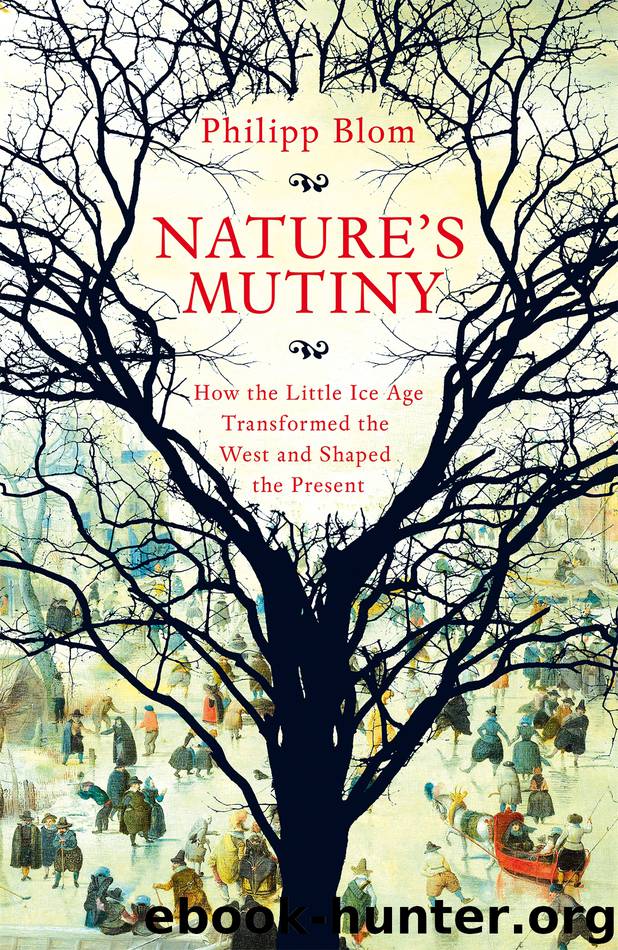Nature's Mutiny by Phillip Blom

Author:Phillip Blom
Language: eng
Format: epub
Publisher: Pan Macmillan UK
No one shall eat without working: The Rasphuis was Amsterdam’s very Protestant answer to indigence and poverty.
Several visitors to the Rasphuis reported on a special punitive feature for which no archaeological record exists: a cell in the basement used for any prisoner who absolutely refused to work. The cell would slowly fill up with water, and the prisoner was equipped with a pump. His choice was simple: work or drown.
Industriousness is next to godliness, the Protestant theologian Calvin had taught, and he had found eager disciples among the pragmatic and hardworking Dutch traders.
Calvin’s doctrine of predestination strongly influenced the way the poor were valued and treated in the Protestant world. If a sinner could force God to forgive him simply by being repentant and living morally, it was thought, this would imply that the Lord was not omnipotent, because he would be coercible. God saves a soul, said Calvin, because it is his pleasure to do so, not because of something that person does or does not do; and since God is omniscient, it follows from this that God has chosen whether or not a person will be saved even before that person is born. God shows this divine “predestination” by granting wealth to those he favors with his grace. Therefore, said Calvin, being rich implied having being chosen, being especially beloved by God. If you made money, it showed that God loved you. But if you remained poor, you had to admit that you had not been chosen.
This theological argument tallied conveniently with the self-image of the merchant patricians whose proud houses lined the canals of Amsterdam’s city center. Ultimately, it meant that their wealth was willed by the Creator himself, and their profits were further proof of his blessings. In Catholic France, the dramatist Molière made a career out of skewering the pretensions of these predestined nouveaux riches, but in the Protestant North, the connection between God’s grace and growing material wealth fit perfectly.
It is interesting to notice the similarities and the differences between this argument (very compelling if you happened to be rich) and the justification used by the aristocracy to assert their own claim to power. In medieval societies, the static, pyramidal structure of society was held to be God-given, and the position of the nobility was seen as part of this divine order. Monarchs ruled by God’s grace, and ultimately everyone had been allotted a position by God’s infinite wisdom, hence each position was largely unchangeable: Once a king or a peasant, always a king or a peasant. Calvin and his Catholic counterpart Cornelius Jansen, however, had offered a theological justification for social climbing. God had chosen them to become rich and powerful, regardless of where they had been born.
In most of Europe, the newly rich imitated the taste and style of the aristocracy. The Netherlands, once again, was the exception; here, a bourgeois aesthetic began to assert itself as early as the seventeenth century. Successful Dutch merchants and professionals did not want to hold
Download
This site does not store any files on its server. We only index and link to content provided by other sites. Please contact the content providers to delete copyright contents if any and email us, we'll remove relevant links or contents immediately.
How to Do Nothing by Jenny Odell(2655)
A Forest Journey by John Perlin(2594)
The Plant Messiah by Carlos Magdalena(2465)
Babylon's Ark by Lawrence Anthony(2080)
Energy Myths and Realities by Vaclav Smil(2075)
The ESV Study Bible by Crossway Bibles(1983)
Abbey in America by Murray John A(1813)
Fatal Storm by Rob Mundle(1794)
Witness Tree by Lynda V. Mapes(1699)
Shadows on the Gulf by Rowan Jacobsen(1521)
Client Earth by James Thornton(1513)
Brokeback Mountain by Annie Proulx(1477)
Coming Back to Life by Joanna Macy(1472)
Water Rights and the Environment in the United States by John Burch(1419)
Cosmos by Carl Sagan(1410)
Ten Billion by Stephen Emmott(1388)
Mycelium Running: How Mushrooms Can Help Save the World by Paul Stamets(1297)
The overachievers by Robbins Alexandra(1289)
The Uninhabitable Earth by David Wallace-Wells;(1198)
